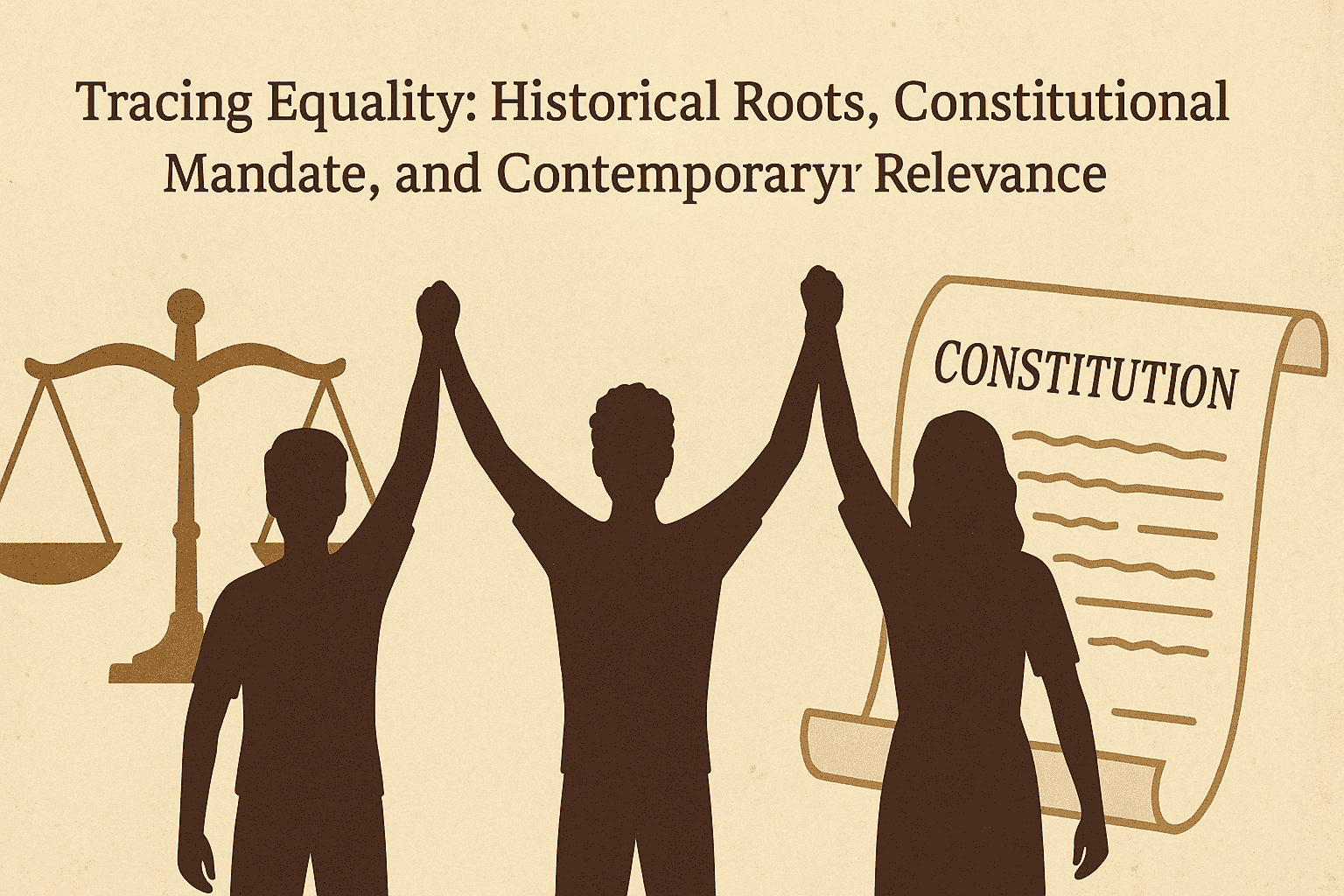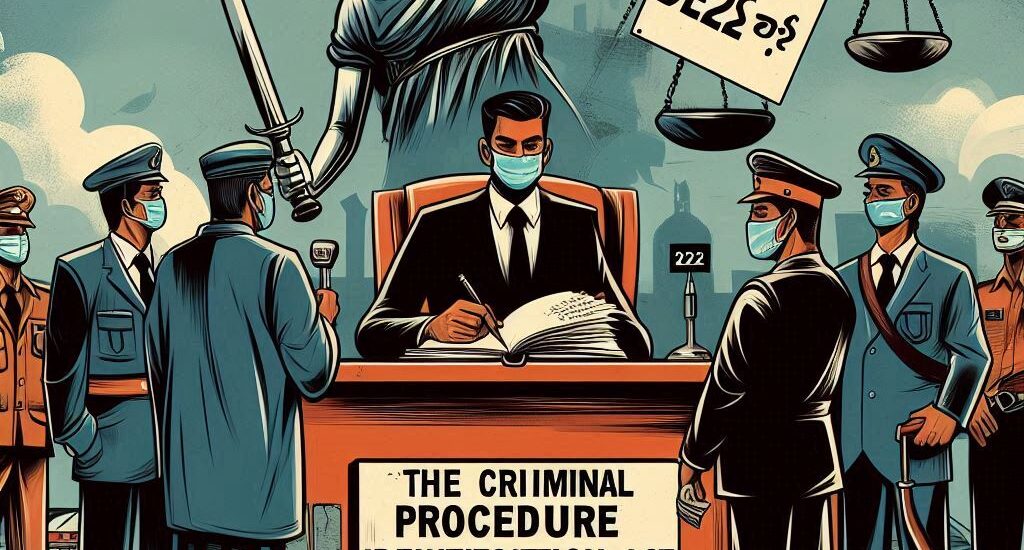



According to the annual report of the NCRB (National Crime Records Bureau) between 1953 and 2023 the cognizable crimes in India increased up to 9.67 times, from 0.6 to 5.8 million [1]. This increase in crime is mostly attributed to the vast increase in population but it essentially shows us that due to this change over the last 70 years, there was a need for better ways in which the data can be collected and stored in order for it to be more efficient for the police to solve crimes as well as keep a systematic record of all the convicts in a centralised database.
The Criminal Procedure (Identification) Act, 2022 came into force after it was passed by the Parliament Of India in April of 2022 after a lot of controversy owing to the provisions that were deemed to be unconstitutional and violative of the fundamental rights of people and the powers it gives to the police with respect to collection of physical data of the prisoners. It replaced the Identification of Prisoners Act, 1922. In a big country like India with such a large population which is only increasing each day and where everyday hundreds and thousands of crimes take place, be it petty or big, there has always been a need for better legislation for collection of data of the prisoners.
Both of these acts have certain similarities as well as differences:
The changes as we can read above brought from the previous act to the new act are in my opinion very necessary in modern times, especially in a country like India with such a large population and low literacy rate. With the advancements in technology i.e. the fast paced rise of Artificial Intelligence, growing crime rate, generation of newer ways in which crimes are being committed it is essential that we provide the police as well as other national investigating agencies like the Central Board of Investigation, Narcotics Control Bureau etc. with a more systematic record of the individuals who are involved in the commission of these unlawful acts.
Putting ourselves in the shoes of these officers we can understand more correctly about the challenges that they would face if such a system does not exist. How hard it would be to identify certain individuals who may be repeat offenders who got acquitted or released and have relocated from one state to another to continue their unlawful operations. Like in the case of Ranjit Mondal And Sajal Barui And Etc. vs State on 31 January, 1997[3] where the accused Sajal Barui who was serving a life sentence in Kolkata for the murder of his Father, Stepmother and Stepbrother escaped to Mumbai without being caught by the police and then returned to Kolkata to continue his life of committing crimes such as Robbery, theft. He roamed around freely for 2 years without being caught working under different aliases and only got caught after being identified by a jailor after being caught for petty theft.[4]
This case actually shows us the need of a centralised database system which would contain finger impressions, palm print impressions, footprint impressions, photographs, iris and retina scan, physical, biological samples, and other behavioural attributes. All these measurements would make the work of the Police much easier while investigating repeat offenders and keeping a record of the persons in a central database for future reference in case these persons continue on the path of such acts.
While the act has the potential to enhance the efficiency and effectiveness of law enforcement agencies in India, it also has the potential to violate the fundamental rights and the privacy of individuals whose measurements will be taken . The opposition has questioned certain provisions of the act due to them violating the fundamental rights of the people of India. Manish Tewari who is an MP from Congress opposed the introduction of the bill in 2022 inside the Parliament stating that “The words ‘Biological Samples and their analysis’ in the Bill could extend to narco analysis and brain mapping and when it is made coercive, it is clearly violative of Article 20 (3) of the Constitution of India”.[5]
Right to Privacy
One of the most critical issues with the Act is the question of the Right of Privacy which is given to each and every citizen of India according to Article 21 of the Indian Constitution. The act proposes the use of biometric identification techniques, the creation of a centralised database of criminal records, and the establishment of a national DNA database, which involves collecting and storage of sensitive private data. The collection and storage of such information raises concerns about the potential for misuse and abuse, particularly in regard to privacy and civil liberties.
In the act there has been no difference made between a convicted person, an accused person, a suspected individual or a person under trial as to who must give these measurements. This unclear definition is problematic as it holds the person who is innocent up to the same standards as a convicted person and is violative of the privacy of those who might be innocent.
The act mentions the collection of biological samples from individuals but does not clarify what these samples would include.
The Act in Section 4 has stated that the National Crime Records Bureau (NCRB) is entrusted with the responsibility of collecting, storing, preserving and destroying the records at a national level and to also make it available to the law enforcements whenever necessary. As this data will be stored in a central database there is a high risk of data breach due to a hack especially in the new age of technology that we live in. One such instance and all the personal information such as the biometric and biological data of the individuals would be leaked forever. These biometric and biological data are unique to every single person and cannot be changed or altered and is thus a very big threat to the Right of Privacy under Article 20 as well as Right to Life and Personal Liberty under Article 21 of the Indian Constitution.
There is a need for better data protection laws which would protect the privacy of individuals in case their personal biological data gets scrutinised due to a data breach from the National Database.
The act gives powers to any Police officer and Prison officer to collect these measurements which I think is not appropriate especially in a country like India. There have been several instances of favouritism to politicians and bribery being taken for wrongful conviction of certain individuals who are innocent. This can also be used wrongfully for the profiling of individuals or a certain section of the society by the police. It is a grave breach of privacy of an individual who is wrongfully detained and convicted by the police.
The Criminal Procedure (Identification) Act of 2022 is a very important piece of legislation that is capable of increasing the efficiency of India’s law enforcement. The legislation intends to improve law enforcement agencies capacity to recognise and capture offenders by implementing modern biometric identification methods, establishing a centralised database of criminal records, and developing a national database. However, the act raises several questions regarding the Fundamental Rights of the citizens. Certain changes need to be made such as a distinction needs to be made between the gravity of the crime for which such data is to be collected like it is done in the USA where in some states a DNA database is only to be used for higher degrees of crimes and there is exclusion of small offences. The act’s effectiveness depends on a balance between improving the efficiency of the law enforcement agencies and safeguarding the rights and liberty of an individual.
[1] Observation Research Foundation, https://www.orfonline.org/research/crime-in-india-a-critical-review-of-data-collection-and-analysis (June 25, 2024. 15:01 pm)
[2] Drishti Ias, https://www.drishtiias.com/daily-updates/daily-news-analysis/criminal-procedure-identification-act-2022 ( June 25. 2024, 15:03 pm)
[3] Indian Kanoon. https://indiankanoon.org/doc/1735444/ (June 25, 2024, 15:10)
[4] Wikipedia, https://en.wikipedia.org/wiki/Sajal_Barui (June 25, 2024, 15:12)
[5] NDTV, https://www.ndtv.com/india-news/the-criminal-procedure-identification-bill-opposition-slams-it-as-unconstitutional-direct-violation-of-fundamental-rights-2848083 (June 25. 2024, 15:20)
https://www.thelegalyoungster.com/legal-internship/